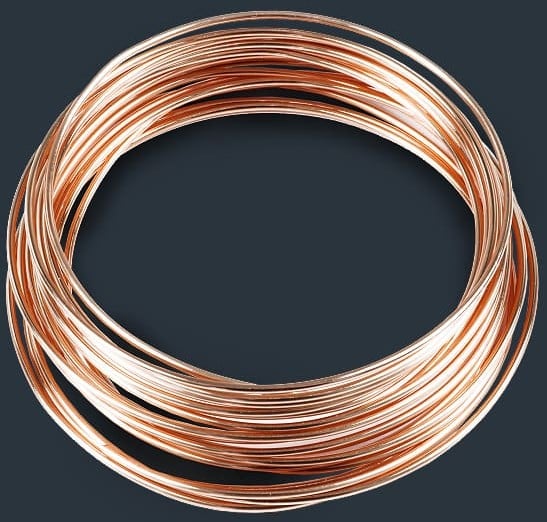The Ultimate Overview to Sustainable Living with Eco-Friendly Copper Products
The Ultimate Overview to Sustainable Living with Eco-Friendly Copper Products
Blog Article
Checking Out the Diverse Applications of Copper Products in Modern Industries
From boosting the effectiveness of electrical systems to playing a crucial function in renewable energy modern technologies, the convenience of copper is evident. As sectors significantly focus on technology and sustainability, the varied applications of copper necessitate a closer assessment, specifically concerning their prospective impact on future technical developments and environmental practices.
Electric Applications of Copper
Copper is a vital material in the electrical market, accounting for roughly 60% of the overall need for non-ferrous metals globally - Copper Products. Its exceptional electrical conductivity, which is almost twice that of aluminum, makes it the favored option for a large range of electric applications. From wiring systems in commercial and residential buildings to high-voltage power transmission lines, copper ensures efficiency and reliability in electrical energy delivery
Along with wiring, copper is indispensable to the manufacturing of electrical parts such as generators, transformers, and motors. These parts take advantage of copper's thermal conductivity and pliability, necessary for warm dissipation and effective efficiency. Moreover, copper's resistance to corrosion boosts the life expectancy and resilience of electric systems, making it a cost-efficient service in the lengthy term.
The growth of sustainable power sources, such as solar and wind power, has even more raised the need for copper in electric applications. As sectors change in the direction of lasting power solutions, copper's duty becomes much more important. On the whole, the convenience and efficiency characteristics of copper solidify its standing as a foundation material within the electrical industry, driving advancement and efficiency throughout different applications.
Plumbing and Piping Solutions
In contemporary plumbing systems, the selection of materials substantially affects both performance and longevity. Copper has actually arised as a favored choice because of its one-of-a-kind properties, consisting of deterioration resistance and antimicrobial attributes. These qualities ensure that copper piping stays resilient and safe for delivering potable water, an essential factor to consider in property and business applications.
Among the essential benefits of copper in pipes is its ability to endure high temperatures and stress, making it suitable for a variety of applications, from warm water systems to heating and cooling down networks. Additionally, copper's adaptability allows for simpler installment in complicated piping formats, minimizing the threat of failings and leaks.
An additional noteworthy benefit is copper's long life-span, typically exceeding 50 years with correct maintenance. This long life not only lessens replacement costs however additionally contributes to lasting techniques by minimizing waste. Furthermore, copper's recyclability lines up with modern-day environmental requirements, advertising a circular economic climate within the pipes industry.
Copper in Renewable Resource
The convenience of copper expands past plumbing applications, playing an important function in the renewable resource market. Its superb electrical and thermal conductivity makes it a vital material in the manufacturing and circulation of renewable resource sources, especially solar and wind power. In solar panels, copper is used in solar cells and electrical wiring, promoting effective energy conversion and transmission. Its resistance to corrosion guarantees lasting performance, which is essential for maximizing energy output over time.

Additionally, as the international need for electric automobiles (EVs) rises, copper's duty in battery systems and charging framework ends up being also extra substantial. The material's ability to perform electrical energy successfully is indispensable to the efficiency of EV batteries, boosting array and charging speed.
Copper's Function in Electronics
Electronics making depends heavily on copper's outstanding properties, particularly its high electric conductivity and thermal performance. These qualities make copper an optimal option for a broad range of electronic parts, consisting of ports, circuit card, and electrical wiring. The metal's capacity to effectively transmit electric signals makes certain very little energy loss, which is crucial in high-performance digital gadgets.
Furthermore, copper's thermal conductivity plays a significant function in warmth dissipation, securing sensitive parts from overheating. This is specifically essential in modern-day electronic link devices, where small designs bring about boosted heat generation. Copper is likewise favored for its pliability and ductility, allowing it to be conveniently shaped into elaborate designs that satisfy the demands of innovative electronic applications.
With the increase of consumer electronic devices, telecommunications, and electrical vehicles, the demand for copper in the electronic devices industry proceeds to grow. As anchor technologies in technology develop, copper continues to be essential to attaining higher efficiency and reliability in electronic items. Its recyclability further improves its allure, as producers seek lasting solutions without jeopardizing top quality. Hence, copper continues to be a cornerstone material in the ever-expanding area of electronics.
Innovative Utilizes in Production

One noteworthy application remains in additive production, where copper-based materials are used in 3D printing processes. This permits the creation of complicated geometries and lightweight components, specifically in the aerospace and automotive sectors. In addition, copper's thermal conductivity makes it a suitable selection for heat exchangers, enhancing performance in industrial cooling systems.
Additionally, the surge of smart manufacturing has seen the unification of copper in IoT devices, where its conductive abilities sustain innovative picking up technologies. In the world of sustainable energy, copper is critical in the manufacturing of photovoltaic panels and wind generators, helping with more efficient energy conversion and distribution.
As markets aim for sustainability and technology, copper's adaptability and efficiency proceed to place it as a critical product, driving advancements in manufacturing and adding to the growth of smarter, extra reliable items.
Final Thought
The indispensable duty of copper in sustainable energy and its necessary function in electronic devices highlight its importance in advancing lasting practices. Jointly, these applications illustrate copper's essential contribution to technical progression and industrial performance in contemporary culture.
From enhancing the effectiveness of electric systems to playing a critical role in eco-friendly energy innovations, the convenience of copper is apparent. As sectors increasingly prioritize technology and sustainability, the diverse applications of copper call for a closer exam, especially regarding their prospective influence on future environmental methods and technical innovations.
The growth of sustainable power resources, such as solar and wind power, has actually even more increased the demand for copper in electrical applications. Generally, the convenience and efficiency features of copper strengthen its status as a cornerstone material within the electrical industry, driving innovation and performance throughout numerous applications.
The convenience of copper extends beyond plumbing applications, playing a vital duty in the eco-friendly power field.
Report this page